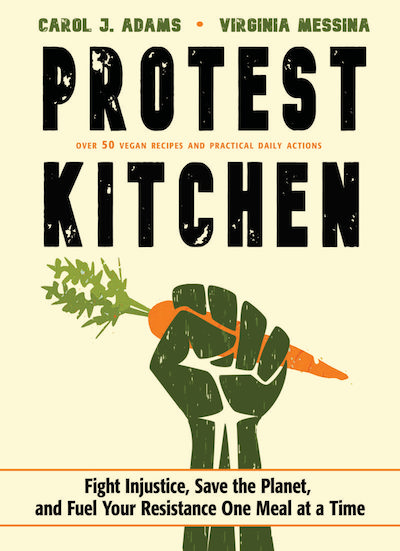 In the midst of a global pandemic, with its attendant periods of isolation and restrictions on social gatherings, many have been spending more time in the kitchen than usual. In the midst of racially motivated violence, police brutality, and the push towards a public reckoning with America’s racist history, many have been seeking new and potentially transformative modes of political engagement. In the midst of an on-going climate crisis and the failure of governments to make the necessary choices to save the planet and fight environmental injustice, many of us may find it easy to feel disheartened and powerless.
In the midst of a global pandemic, with its attendant periods of isolation and restrictions on social gatherings, many have been spending more time in the kitchen than usual. In the midst of racially motivated violence, police brutality, and the push towards a public reckoning with America’s racist history, many have been seeking new and potentially transformative modes of political engagement. In the midst of an on-going climate crisis and the failure of governments to make the necessary choices to save the planet and fight environmental injustice, many of us may find it easy to feel disheartened and powerless.
A unique combination of cookbook and manifesto, Adams and Messina’s Protest Kitchen: Fight Injustice, Save the Planet, and Fuel Your Resistance One Meal at a Time (Conari Press, 2018) argues that “how you eat is a form of protest” (p. 5). Boiled down to its essentials, Adams and Messina’s main claim is that adopting a vegan diet can be a way to protest racism, patriarchy, climate change, food injustice, and to promote compassion and integrity. They make this argument by tracing the conceptual and historically rooted connections between the centrality of animal products in the “all-American diet,” on the one hand, and regressive politics, climate change, environmental racism, and misogyny, on the other. For instance, they argue that the very concept of animality, defined in contrast to and as inferior to that of humanity, provides tools for social oppression: “There has always been a human/animal binary to racist, misogynist, and ableist logic. In the political sphere, animality functions as a tool for democratic exclusion. Oppression elevates some humans as deserving equal protection and equal participation as citizens and lowers others, by making them “other” and suggesting they are more like animals” (p. 97). Adams and Messina’s provocative suggestion: challenge the underlying humanity/animality binary upon which such oppression is speciously “justified.” Thus, far from ignoring the human political and social crises of our time, as the “you-only-think-about-the-animals” vegan stereotype might suggest, Adams and Messina contend that animal oppression is essentially linked to human oppression. This is what I find most compelling about Protest Kitchen: that it provides a unifying analysis of the most pressing national and global issues of our time, through the lens of our (that is, us humans’) relations to the other animals.
Although the core ecofeminist argument in Protest Kitchen is not new (see, for example, Adams’ The Sexual Politics of Meat), the book is distinctive in the way it is interspersed with no-nonsense, practical tips for engaging in activism, a variety of simple recipes for reducing meat consumption, and a primer on plant-based nutrition. While the book takes on serious topics, it is garnished with a dash of playfulness that cuts through the heaviness; for instance, with the inclusion of recipes such as the “imPeach Crumble,” and the “‘Stop the Wall’ Taco Salad Bowl with Fire and Fury Salsa.” If nothing else, the book promises to be food for thought, while sparking some thought about food.
–Drew Johnson
Ph.D. Candidate
Philosophy
 Who is Drew Johnson? Drew Johnson is a Ph.D. student (ABD) in the philosophy department at the University of Connecticut. His research focuses on metaethics and epistemology. His dissertation proposes a theory of ethical thought and discourse that explains the distinctive action-guiding, affective, and expressive dimensions of ethical claims and judgments, while also recognizing the important semantic, logical, and epistemological continuities that exist between ethics and other factual domains. In epistemology, Drew’s research focuses on the rational standing of our most firmly held commitments, i.e., our “hinge” commitments upon which all rational evaluation turns.
Who is Drew Johnson? Drew Johnson is a Ph.D. student (ABD) in the philosophy department at the University of Connecticut. His research focuses on metaethics and epistemology. His dissertation proposes a theory of ethical thought and discourse that explains the distinctive action-guiding, affective, and expressive dimensions of ethical claims and judgments, while also recognizing the important semantic, logical, and epistemological continuities that exist between ethics and other factual domains. In epistemology, Drew’s research focuses on the rational standing of our most firmly held commitments, i.e., our “hinge” commitments upon which all rational evaluation turns.

